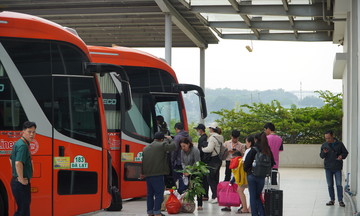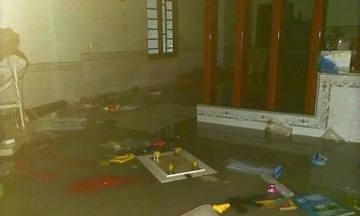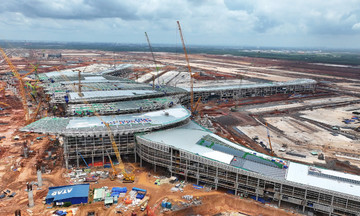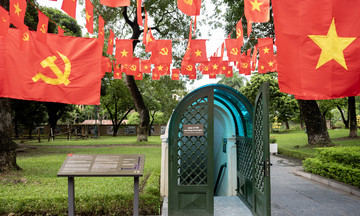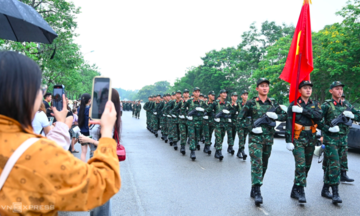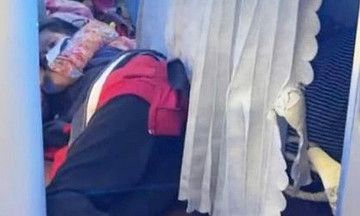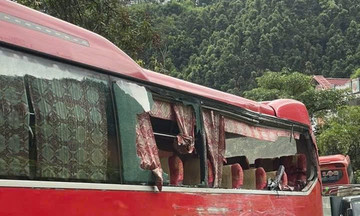Hanoi's transport development plan up to 2030, with a vision to 2050, projects a 413 km metro system. Currently, 21.5 km are operational, leaving 397.8 km yet to be developed. By 2030, the city aims to construct 96.8 km and prepare for investment in another 301 km, with an estimated total investment of over 14.6 billion USD.
Ho Chi Minh City also aims to complete 7 metro lines totaling approximately 355 km by 2035. A further 155 km are planned for subsequent phases, bringing the total network length to 510 km.
To accelerate progress, the government has introduced specific policies for Hanoi and Ho Chi Minh City. Each year, the central budget will allocate 215,000 trillion VND to Hanoi and 209,000 trillion VND to Ho Chi Minh City for urban railway projects.
Many domestic consortiums are starting to propose themselves as EPC contractors for these projects. The Deo Ca - Fecon - Powerchina - Sucgi consortium has expressed interest in line 2 (Ben Thanh - Tham Luong) and other lines in Ho Chi Minh City. The Dai Dung Group, Construction Corporation No. 1, and Hoa Phat Group consortium has also proposed to be the main contractor for metro line 2, the Thu Thiem - Long Thanh line, and the line from Binh Duong New City to Suoi Tien.
Currently, metro projects are often led by foreign companies. For example, metro line 1 (Ho Chi Minh City) is being implemented by Japanese companies, with domestic enterprises like Cienco6, Fecon, Cienco4, and Licogi acting as subcontractors. The Nhon - Hanoi Station metro line involves several main contractors from France and South Korea, with Vietnamese companies like Fecon and VNCN E&C primarily handling tunnel sections.
Vietnamese enterprises typically undertake the construction of elevated sections, stations, foundation structures, retaining walls, tunnel boring machine (TBM) operation, tunnel excavation and lining, and supply of equipment and materials for tunneling and underground station construction. However, key technologies such as TBMs, signaling systems, automatic train control, and integrated electromechanical systems are provided by foreign suppliers.
Billion-dollar value chain for domestic infrastructure and industry
Each metro project, with a total investment of 1.5 to 2 billion USD, includes technically complex components such as tunnels, elevated tracks, depots, rails, trains, signaling, electrical systems, and control systems, creating substantial opportunities for domestic construction, tunneling, and equipment manufacturing companies.
Deo Ca Group estimates that the metro systems in the two major cities will have about 110 km of tunnels, costing 412,500 trillion VND, requiring nearly 2,000 pieces of equipment and over 6,600 technical workers. This presents both a challenge and an opportunity for businesses to enhance their capabilities, access modern technology, and expand their market share.
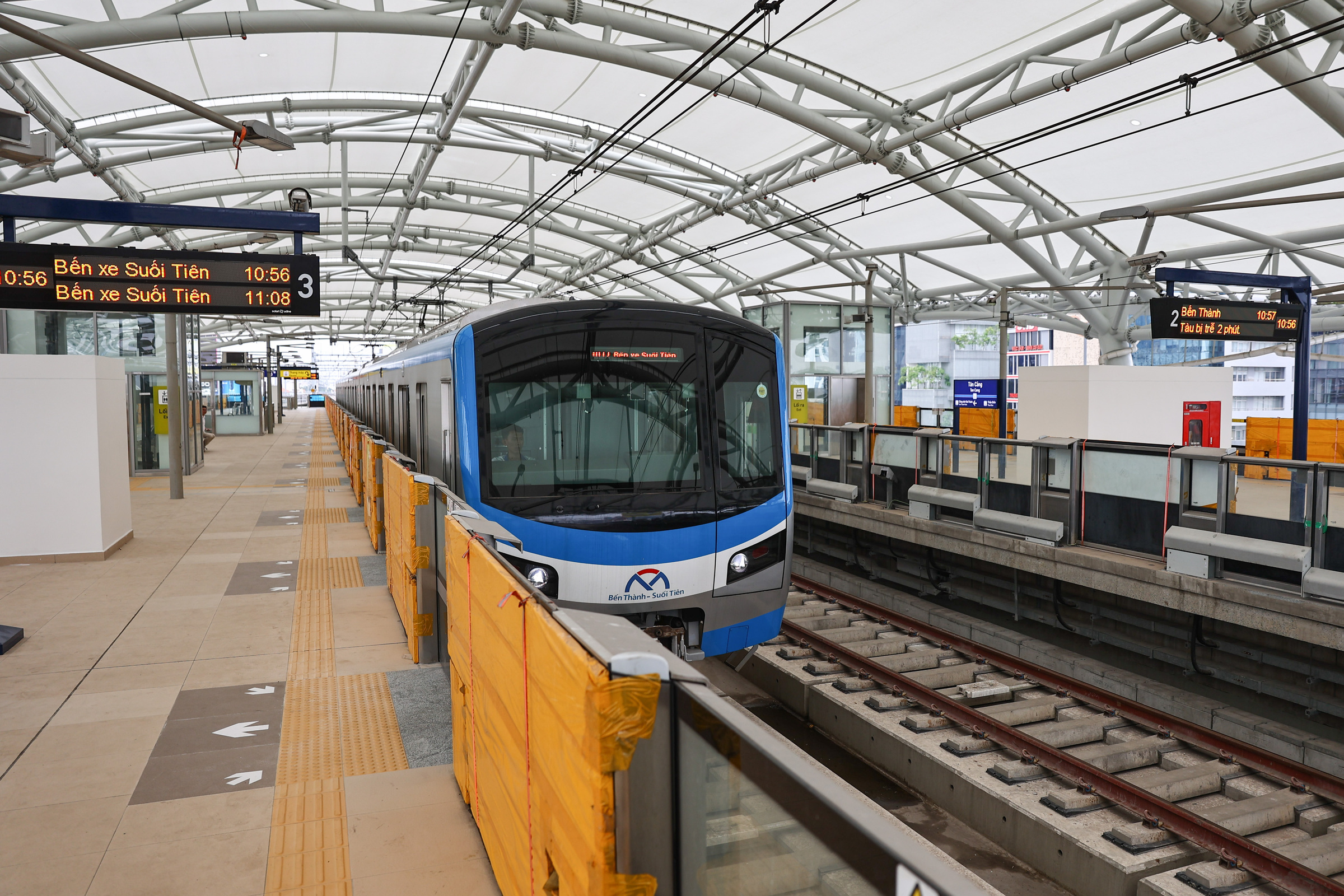 |
Ho Chi Minh City currently has only metro line 1, Ben Thanh - Suoi Tien. Photo: Quynh Tran |
According to Tran Thien Canh, Director of the Vietnam Railways Administration, domestic companies have mastered the construction of elevated sections and the casting of concrete sleepers. The railway sector has achieved 60-70% localization in passenger car production and 80-90% in freight cars. Locomotives can be newly built, but the localization rate is still low (around 10%), and domestic enterprises lack experience in producing locomotives and carriages for metro systems.
However, Vietnamese enterprises face significant challenges including a lack of technical expertise, capital, experience in managing integrated EPC projects, and limited access to support mechanisms. The metro sector demands high technical skills, large-scale operations, strict deadlines, and complex system management, from infrastructure to operational equipment. Domestic enterprises currently lack specialized metro engineers, proficiency in operating high-tech equipment, and experience in designing integrated technical systems.
Canh believes that if Vietnamese enterprises only act as subcontractors, they will remain dependent on foreign experts and struggle to acquire technology transfer. When domestic enterprises take on the role of EPC contractors, they can collaborate with foreign partners to receive technology transfer, equipment, and metro operation procedures, gradually mastering the technology.
Technological autonomy
According to Associate Professor Tran Chung, Chairman of the Vietnam Road Traffic Infrastructure Investors Association, the major challenge for domestic enterprises is accessing technology and improving their capacity in metro infrastructure construction. To address this, Vietnamese enterprises need to master TBM tunneling technology – a crucial element in underground metro construction. Owning this equipment reduces dependence on foreign partners, saves costs, and enhances competitiveness.
Deo Ca Group has signed a contract to purchase TBM equipment and sent engineers to China for training and practical experience on metro tunnel projects using TBMs. This is the first enterprise in Vietnam to possess this technology. The company has also established a training institute with over 1,000 university engineers and 3,000 technical workers. Training is conducted on-site and extended to domestic partners.
The government has tasked Vietnam Railways Corporation with developing a 250-hectare railway industrial complex south of Hanoi. From 2029-2031, the complex will focus on assembling locomotives, carriages for speeds under 160 km/h, and urban rail vehicles. From 2032-2035, the goal is to increase the localization rate to 30% and produce specialized components and spare parts. This complex is expected to be a catalyst for the railway industry to gradually meet the investment and infrastructure upgrade needs, estimated at around 275 billion USD by 2050.
Countries like China, South Korea, and India have undergone similar phases. China, now boasting the world's largest metro network, initially collaborated with international companies like Siemens, Alstom, and Kawasaki to learn the technology. They then rapidly localized the entire supply chain, from TBMs and train cars to signaling and safety systems. China is now the world's largest TBM manufacturer.
Similarly, India initially imported technology from Japan (including design, train cars, and signaling), subsequently requiring technology transfer and domestic production. Over 75% of metro equipment is now manufactured in India, from trains, rails, and transformers to control software. South Korea has promoted policies to support domestic enterprises through domestic EPC mechanisms and localization requirements for various components.
According to Associate Professor Tran Chung, Vietnam's urgent task is to develop a roadmap for railway industry development in line with the long-term comprehensive railway network plan. It is crucial to establish technical standards for various railway types to create a clear legal framework, enabling effective implementation by businesses.
In addition, large domestic enterprises and corporations can assume the role of general contractors in some metro projects. For specialized areas, collaboration with foreign companies through joint ventures is a suitable solution to leverage international technology and experience.
Experts recommend that the government establish mechanisms to support preferential loans and procurement for domestic contractors and manufacturers. Crucially, the government should guarantee output for domestic technologies and implement mechanisms to appoint EPC consortiums for metro projects, mandating the participation of domestic enterprises to facilitate technology absorption and mastery.
The Vietnam Railways Administration aims for domestic enterprises to manage 90-95% of sub-rail infrastructure by 2030, progressing towards constructing the supra-rail components for railway lines with speeds under 200 km/h. In materials, domestic companies will also gradually develop the metallurgy industry to produce P43 and P50 rails and maintenance parts, striving for comprehensive autonomy.
Doan Loan




